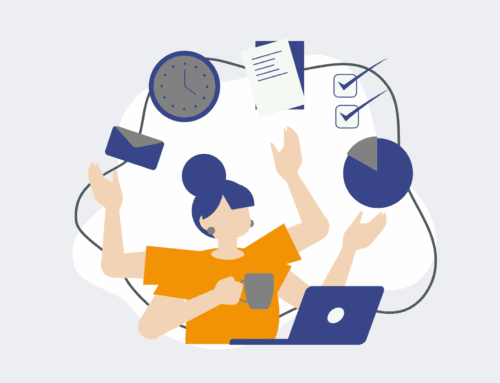Upskilling HR Teams for the AI Era: Essential Skills for Tomorrow
The landscape of human resources is undergoing a monumental shift, driven by the relentless march of artificial intelligence. What was once considered a supportive, largely administrative function is now poised to become a strategic powerhouse – if HR teams are equipped with the right skills. For business leaders, this isn’t just about investing in new software; it’s about fundamentally rethinking the capabilities of their HR departments to ensure they can not only keep pace but also lead the charge in an AI-driven world.
At 4Spot Consulting, we’ve witnessed firsthand how businesses either thrive or struggle based on their agility in adopting new operational paradigms. The AI era in HR isn’t a distant future; it’s here, and the imperative to upskill is immediate. Failure to adapt means falling behind, risking human error in manual processes, missing critical insights, and ultimately hindering an organization’s ability to attract, retain, and develop top talent effectively.
The Shifting Landscape: Why Traditional HR Skills Aren’t Enough
For decades, HR has been characterized by its deep understanding of human behavior, legal compliance, and operational processes like recruitment, onboarding, and payroll. While these foundational elements remain crucial, AI is rapidly automating many of the transactional tasks that once consumed a significant portion of HR’s time. This automation isn’t a threat; it’s an opportunity – an opportunity for HR professionals to elevate their role from administrators to strategic architects of the workforce.
However, this elevation isn’t automatic. It demands a new set of competencies. The traditional skillset, while valuable, is insufficient for navigating the complexities of AI integration, ethical considerations, and leveraging data for predictive insights. HR teams must evolve from being process executors to being strategic problem-solvers, data interpreters, and champions of ethical technology adoption.
Beyond Transactional: Core Skills for AI-Powered HR
Data Literacy and Analytics
AI thrives on data, and so too must modern HR. It’s no longer enough to generate reports; HR professionals need to interpret AI-driven insights, understand correlations, and translate complex data points into actionable strategies. This means moving beyond basic Excel functions to understanding metrics from predictive analytics platforms, discerning patterns in employee sentiment data, and leveraging AI to forecast talent needs and attrition risks. HR leaders must be able to ask the right questions of their data and critically evaluate the outputs of AI systems, ensuring they are valid and unbiased.
Strategic Automation Design
The heart of AI in HR lies in intelligent automation. HR teams need to identify processes ripe for automation, from candidate screening and interview scheduling to benefits administration and performance feedback loops. This requires a strategic mindset: understanding how AI tools integrate with existing systems, designing efficient workflows (much like our OpsMesh framework), and ensuring seamless data flow. It’s about envisioning an HR ecosystem where manual, repetitive tasks are minimized, freeing up human capital for high-value strategic initiatives.
Ethical AI and Governance
Perhaps no other function is better positioned than HR to champion the ethical implementation of AI. With AI’s potential for bias in hiring algorithms, privacy concerns, and the impact on employee experience, HR professionals must become the moral compass. This skill involves understanding AI’s limitations, proactively identifying potential biases, establishing robust governance frameworks, and ensuring transparency and fairness in all AI-driven decisions that impact employees. It’s about protecting both the individual and the organization’s reputation.
Change Management & Communication
Introducing AI into an organization can evoke fear, uncertainty, and resistance. HR professionals must be adept at leading change initiatives, communicating the benefits of AI adoption clearly, and addressing employee concerns with empathy and strategic vision. This involves crafting compelling narratives around how AI will augment human potential, providing robust training, and fostering a culture that embraces continuous learning and adaptation. Guiding employees through this transformation is paramount to successful AI integration.
Human-AI Collaboration
The future of work is not human OR AI, but human AND AI. HR teams need to cultivate the ability to define and optimize the collaborative efforts between human workers and AI systems. This means understanding where AI can enhance decision-making, where it can streamline processes, and where human intervention remains indispensable for empathy, complex problem-solving, and relationship building. HR’s role is to design and nurture these symbiotic relationships, ensuring that technology serves humanity, not the other way around.
Implementing the Shift: A Proactive Approach
For HR leaders, the time for passive observation is over. Investing in the upskilling of your HR team is no longer a luxury; it’s a strategic imperative. This requires a proactive approach to learning and development, potentially through specialized training programs, external partnerships, and fostering an internal culture of continuous learning and experimentation. Starting with a clear strategic audit, like our OpsMap, can uncover current inefficiencies and pinpoint the precise automation and AI opportunities that will yield the greatest impact for your HR function.
The transformation of HR into an AI-enabled strategic partner is a journey, not a destination. It demands leadership, investment, and a willingness to embrace new paradigms. Those who empower their HR teams with these essential skills will find themselves at the forefront of organizational effectiveness, ready to navigate the complexities and opportunities of the AI era, saving valuable time and driving tangible business outcomes.
If you would like to read more, we recommend this article: Mastering AI in HR: Your 7-Step Guide to Strategic Transformation







